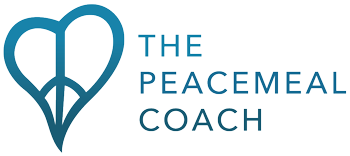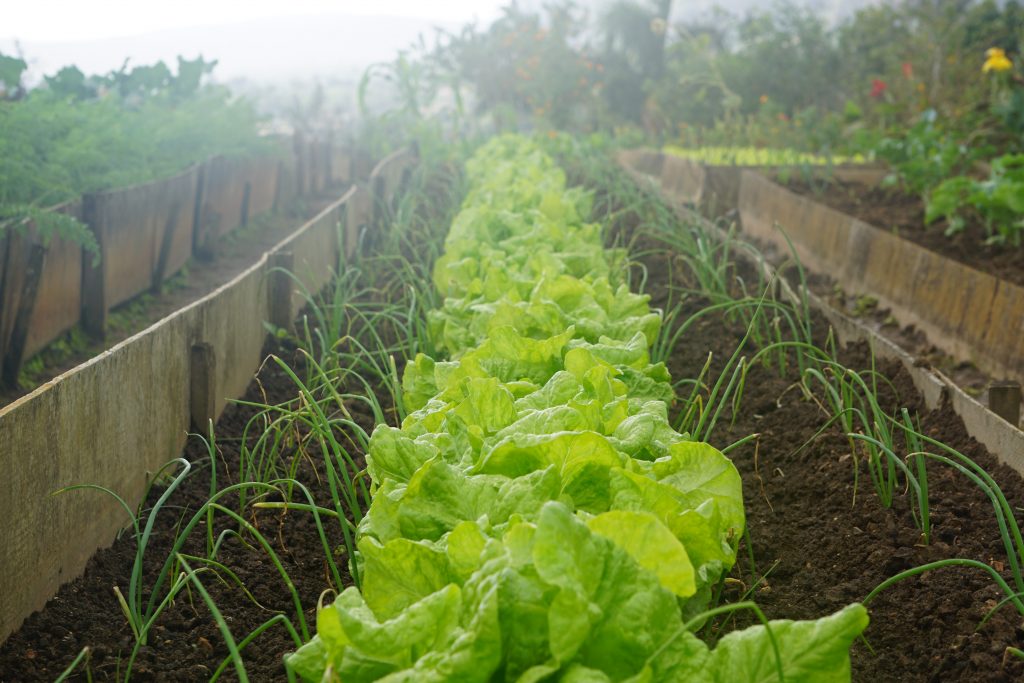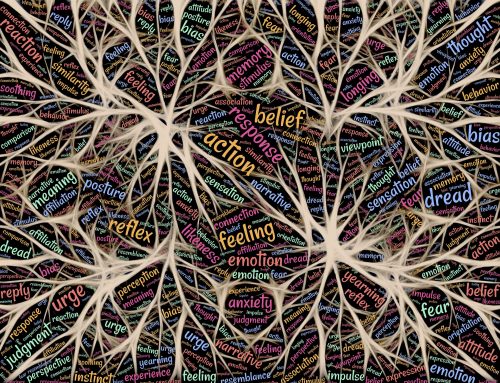Parents can learn ways to grow their belief in their teen’s anorexia recovery. I like to think about growing belief in the same way I think about growing a garden. Our current negative beliefs about anorexia recovery are weeds that we pull to make room for better beliefs to grow.
No one would blame you if you don’t have a strong belief in anorexia recovery. Anorexia gets a lot of bad press. Parents want to be optimistic, but caring for a child with anorexia is grueling. Some days it’s hard to find much proof of progress. Sometimes our garden gets overgrown with weeds. Too many weeds make it hard to see any growth of the seeds we planted.
Catastrophic Thinking
Have you ever noticed that your brain wants you to believe that things are much worse than they actually are?
- Your anorexic teen believes she will be in danger if she eats the plate of food you have placed in front of her. You believe you have failed as a parent because she has an eating disorder.
- She believes her world is crumbling because you are asking her to eat. You believe your world is crumbling because she refuses to eat.
While it is easy for us to see that her thoughts that food is causing her harm aren’t true, it can be much harder for us to identify when our own thoughts aren’t true. But when we become aware of our catastrophic thinking, we can identify it as a weed that we don’t want in our garden.
Rigid Thinking and Anorexia
Anorexia hijacks a teenager’s thoughts to the point that self-loathing is on autopilot. It isn’t uncommon for thoughts to be so rigid that a teen believes that he or she is only acceptable at a lower weight and a thinner appearance.
Your teen’s brain may decide ahead of time that she will feel miserable until she hits whatever “perfect” target she has set for herself. When she doesn’t achieve the perfection she seeks, she continues the pursuit with no allowance for joy. This creates a pattern of striving that is driven by negative emotions—fear, self-loathing, anxiety, and all for reasons that are ultimately not useful.
Imagine, for example, someone’s goal is to win first place in a competition. This person decides that winning is her only option. She focuses on the outcome. Winning becomes her sole focus. She barely sleeps, spending most of her time practicing. As the event approaches, she believes that this time she’ll win. This time she’ll live up to her potential.
She isn’t striving for growth, enjoying the process, or carefully planning how to prepare. She is grasping, clinging, desperately clawing her way to what she hopes is the win. In her mind, winning is the only thing that will prove she is good enough. As a result, when she gets 2nd place, that proves to her that she still isn’t good enough. In her mind, because she didn’t get 1st place, she is still a loser. She didn’t reach her goal.
How many of us do this to ourselves? Too many of us set ourselves up to stay in a place of disappointment and discouragement.
This type of rigid thinking is one of the hallmarks of anorexia.
The rules and restrictions, the self-deprivation, the life of misery that has no useful purpose are things parents of anorexic teens are used to observing in our anorexic kids. Our teens are in the habit of looking for evidence that they are as horrible as their brain keeps telling them they are. But, how aware are we of our own tendency to do the same?
Negative Beliefs
Like weeds taking over a garden, negative beliefs about ourselves can take over. It is harder and it takes longer to grow what we want when our garden is overcome with weeds. We have to pull the weeds out on a regular basis for our gardens to grow. When we let the weeds go unsupervised, we keep ourselves from growing a healthy garden.
The patterns, the neural pathways, are so deeply embedded that it seems impossible to interrupt or stop the thought errors long enough to ease up on ourselves and choose a new way of thinking. It takes commitment and practice. But it can be done.
As a parent caring for your anorexic teen, chances are you are constantly exposed to your teen’s feelings. That makes it easy to put your own feelings on the back burner.
Self Awareness
- How often do you take the time to pay attention to your own emotions?
- Are you feeling good about your parenting, or have you noticed a dip in your confidence since your teen’s diagnosis?
- How are your own beliefs about your teen’s anorexia impacting your emotional state and your behavior?
- Does it seem like you don’t have a choice but to suffer because your teen is suffering?
If you are finding that negative emotions are the only emotions you have felt since your teen’s diagnosis, then you have gotten focused on thoughts that seem true, but that aren’t helping you or your teen. That’s okay. But I want to offer you a choice. When believing all of the negative sentences in your brain doesn’t provide anything of value to you or your teen, you have the option to counter those beliefs with better ones.
Creating New Beliefs
Changing your beliefs requires work. It means becoming aware of them. This kind of change requires practice. Creating new beliefs takes some discipline. The goal is to go from restricting joy to regaining it.
Expect resistance.
Much like requiring your anorexic teen to eat, requiring your brain to think new thoughts will be met with much resistance. You will need to learn to push back with confidence. This process is time consuming. You may find it exhausting. It can even be exasperating. But it’s the next level of taking charge of your teen’s recovery.
Become empowered.
When we learn to step out of the thought weeds that many of us get stuck in, we are able to objectively observe how often our brains are telling us things that aren’t true. Once we learn how to think, feel, and act like the parent we truly want to be for our teen as they battle anorexia, we are empowered. We put ourselves on the front lines. The end result is we become warriors for our teen.
How To Grow Your Belief in Anorexia Recovery
Luckily, there are strategies we can use to remove the unintentional thoughts(weeds) to make room for intentional thoughts (garden).
1. Start looking for evidence that things are going well.
Build up a reserve of these things by keeping a journal. Instead of counting the catastrophes, keep track of things to celebrate. Even neutral things are better than the losses you normally tally up and use as ammunition against yourself.
2. Use bridge thoughts to grow your belief in anorexia recovery.
This allows you to go from extremely negative reflections of yourself and your teen’s progress to more neutral thoughts. You can later move from neutral thoughts to positive thoughts. Practicing positive thoughts about anorexia recovery will grow your belief in anorexia recovery.
By neutralizing negative thoughts, even slightly, you can create an emotion that feels different and takes the edge off. For example, if you are thinking, I am not strong enough to do this, you can start with a bridge thought of, I am learning to be strong or my love for my child is strong.
3. Take time outs from yourself scheduled on your calendar.
During these time outs you may not allow your brain to torment you. Whether it is yoga, meditation, listening to music, a fun activity, or time reading a good book, make it a priority. When the negative thoughts about yourself pop up, you can acknowledge them as just sentences in your brain that aren’t true, and move on.
4. Rewrite your version of the story to grow your belief in anorexia recovery.
In this way, instead of having a negative reaction to something, you are able to look at it in a different way. For example, if you have been ruminating about how badly you handled your teen’s refusal to eat dinner last night, instead of repeating the story that you aren’t good at getting her to eat, try focusing on the progress you have made at remaining compassionate during even the toughest mealtimes. Your story about your ability to support her even when she is having a hard time will be much more helpful than your story about last night’s dinner gone wrong.
5. Ask, “what would I need to be thinking in order to grow my belief in recovery?”
It is easy to get angry and frustrated if after weeks of progress, your teen shows signs of resistance. You might automatically find yourself thinking that you are all the way back at square one. It isn’t surprising that you might feel like the rug has been pulled out from under you, and you may want to revert to all of the familiar feelings you had when your teen was first diagnosed.
Allow your current feeling.
If you do feel the fear, distress, or panic, that’s okay. Just remind yourself that it is a normal part of recovery for your teen to have ups and downs. Allow your feeling to pass without avoiding it or reacting to it. Then, when you are calm enough to see the setback as part of the journey, you can work on coming up with a thought that you can call on when the next setback happens.
Find a new thought.
For example, it can be really helpful to practice thinking that nothing has gone wrong. If you tend to become anxious when your teen shows anorexic behaviors that you haven’t seen in a while, try practicing thoughts that will allow you to remain calm and compassionate. When you practice thinking, I know how to be compassionate when she is struggling, for example, you will be much more prepared to keep your cool no matter what.
Practice believing.
Beliefs come from thoughts that we repeatedly think. When we plant the seeds of thoughts that are useful to us, and learn to recognize and “pull” the weeds, we can grow a beautiful garden that will nourish us as we nourish our teen. By weeding out negative thoughts, we can make room to grow our belief in anorexia recovery. To grow your belief in anorexia recovery, practice thinking what you want to believe. With repetition, your belief will continue to grow.
If you would like help navigating the ups and downs of caring for your anorexic teen, email me at jenni@peacemealcoach.com.






